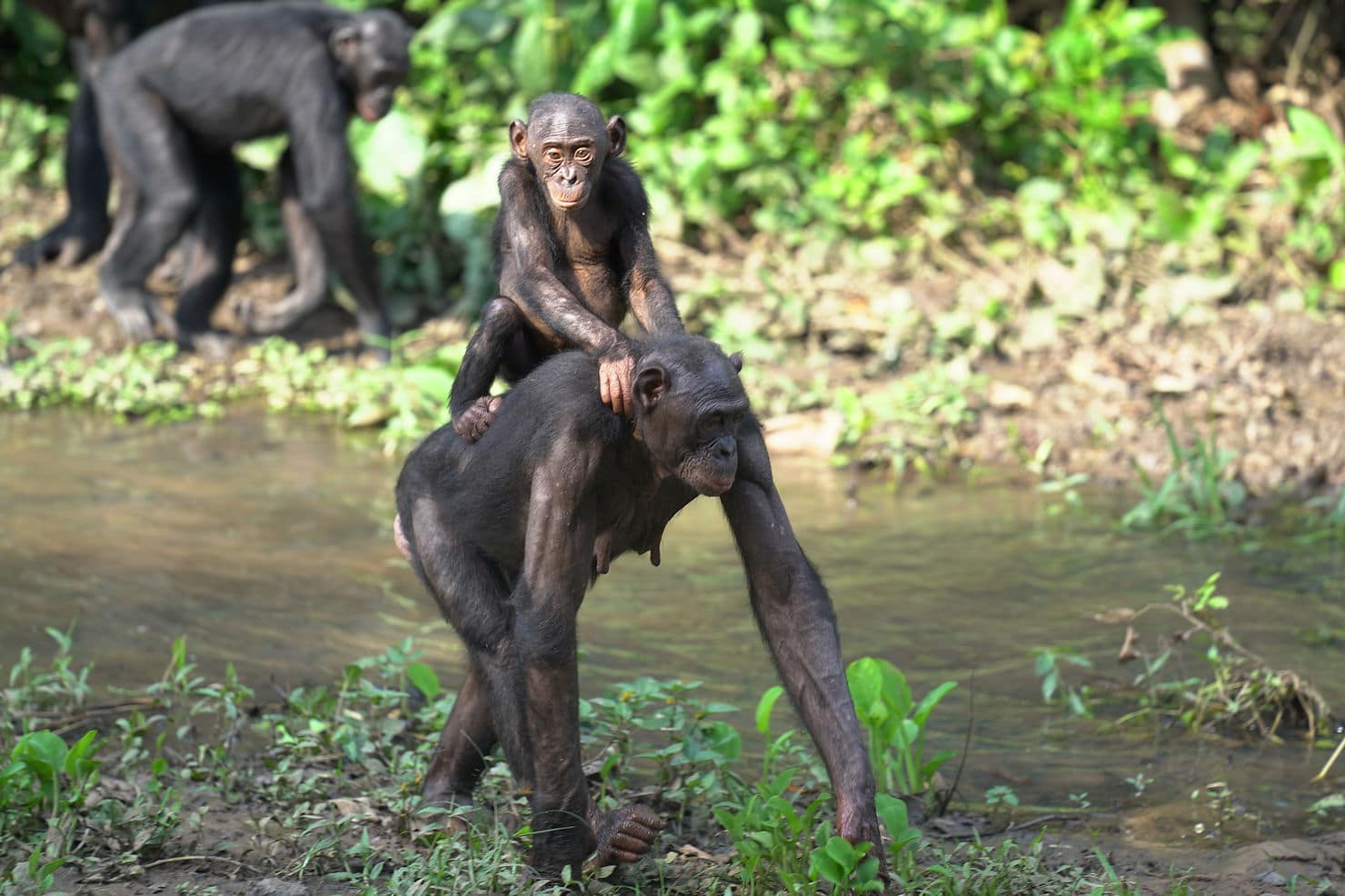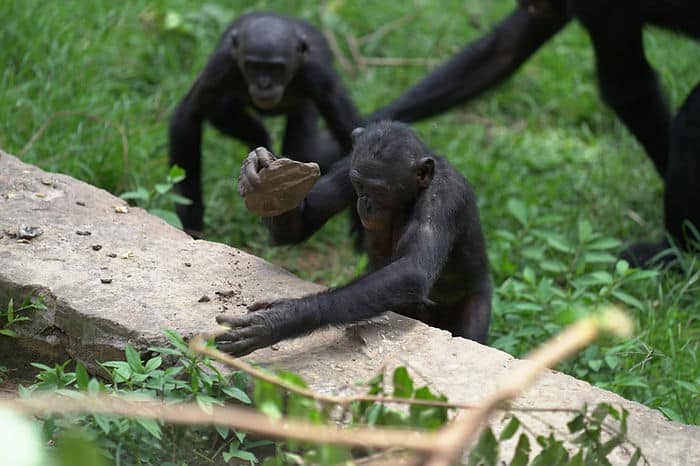The bonobos at Lola ya Bonobo sanctuary caught the attention of National Public Radio this spring, inspiring not one but two NPR features exploring the unique nature of the species! The first one focused on their scientific importance, and how bonobos help explain the evolution of kindness in humans.
Read the NPR Goats and Soda blog post
Listen to the story on NPR’s ALL Things Considered
NPR’s Jon Hamilton interviewed several Lola staff members to learn about the behavioral features of the bonobos they take care of, including caretaker Bernard Nsangu, surrogate mother Yvonne Vela, bonobo wellness manager Suzy Kwetuenda, and veterinarian Jonas Mukamba, as well as the sanctuary’s founder, Claudine André.

Like humans, but not like us, too
NPR highlighted the incredible research opportunities provided by the sanctuary that have led to many important discoveries. Bonobos share 98.7% of their genes with humans, which means they are tied with chimpanzees as our closest living relatives. Because of this genetic similarity, studying bonobos can tell us a lot about the evolution of our own species. In particular, scientists believe comparisons between humans, bonobos, and chimpanzees may provide us with clues about the evolution of human kindness.

Unlike humans (and chimpanzees), bonobos live in a remarkably peaceful society. More interesting still is how they manage to keep the peace and negotiate social conflicts – they use sex and genital contact. From a young age, both female and male bonobos use sexual relations to work out disputes and bond emotionally with each other, resulting in a group harmony seen very rarely in the animal kingdom.
Another unique feature of bonobo society is that they are female-dominated, with the power passed down through a matriarchal line. Additionally, bonobos are unique because they are xenophilic, meaning they will happily interact with strangers. Research has shown that bonobos actually prefer to share food with strangers over familiar bonobos, in contrast with chimpanzees, who share only with friends and family.
75 published studies
As the world’s only bonobo sanctuary, Lola ya Bonobo offers researchers a unique opportunity: the chance to study our closest relatives in a naturalistic setting. Lola welcomes scientists from around the world, whose research has generated more than 75 published studies. Scientists have discovered that bonobos will “empathy yawn” and can respond to communicative pointing, among other abilities.

Throughout history, humans have often channeled their inner bonobo, using communication, cooperation, and conflict resolution to build complex societies. And yet, humans have also proven we are also just as connected to the chimpanzee side of our nature. As a species, humans are capable of extreme violence and cruelty.
As Claudine André says in the NPR story, “Humans can be a fantastic bonobo with a big heart or a dangerous warrior. We are mixed.”



